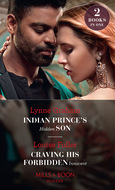Kitap dosya olarak indirilemez ancak uygulamamız üzerinden veya online olarak web sitemizden okunabilir.
Kitabı oku: «The Sheikh's Virgin»
“To a man like your father you are merely an object, a possession to be used, bartered, traded.”
Each word was worse. Each word bit and stung. “But you’re the same, aren’t you, Sheikh Nuri?” Keira’s throat was swelling closed and she had to force each syllable and sound out. “You’re using me, too. You’re using me to get back at my father. At least be man enough to admit it.”
She heard his soft hiss at her insult. His touch changed, shifted, fingers extending from her chin to her jaw, his fingers briefly caressing the width of her jawbone.
“You lack a Barakan woman’s good sense and quiet tongue. Yet I’m beginning to think you deserve a Barakan husband. One who would teach you humility and a modicum of self-control.”
She ground her teeth, temper flashing in her eyes. “Hate to disappoint you, Sheikh Nuri, but some things can’t be taught.”
“That’s where you’re wrong, laeela. Anything can be taught. It just takes the right teacher.” A flicker of dark emotion shone in his eyes. “And you would need not just a good teacher, but a patient teacher.”
The Sheikh’s Virgin
Jane Porter

MILLS & BOON
Before you start reading, why not sign up?
Thank you for downloading this Mills & Boon book. If you want to hear about exclusive discounts, special offers and competitions, sign up to our email newsletter today!
Or simply visit
Mills & Boon emails are completely free to receive and you can unsubscribe at any time via the link in any email we send you.
For my posse, the great girls who got me through it all—Kelly, Lori, Lisa, Kristiina, Cheryl, Sinclair, Joan, Janie & Jamette. I love you.
CONTENTS
PROLOGUE
CHAPTER ONE
CHAPTER TWO
CHAPTER THREE
CHAPTER FOUR
CHAPTER FIVE
CHAPTER SIX
CHAPTER SEVEN
CHAPTER EIGHT
CHAPTER NINE
CHAPTER TEN
CHAPTER ELEVEN
CHAPTER TWELVE
CHAPTER THIRTEEN
PROLOGUE
FORCE a girl to marry?
Take her from her home? Carry her hostage across the Atlantic Ocean? Isolate her from family and friends until she finally caved, acquiescing to her father’s desire that she marry…even if the man were twenty years older?
Sheikh Kalen Tarq Nuri had heard worse.
Draining his martini, he pushed the empty glass away, black eyebrows flattening over narrowed eyes.
He was in New York having closed a big deal and was now out to dinner celebrating the acquisition with his top brass, those who’d executed the nasty buyout. The other company hadn’t wanted to be bought. Sheikh Nuri had wanted the purchase.
Sheikh Nuri got what he wanted. Always.
Tapping the rim of his empty martini glass, Kalen Nuri felt a surge of desire, the desire of a hunter, the desire of a predator. Like the hawks he used to own in Baraka, the beautiful fierce falcons, Kalen was ready to hunt.
To give chase.
To pounce.
There were worse things than forcing a young woman to marry against her will.
There was betrayal. Attempted murder. And the revelation of a plot to assassinate not just the Sultan of Baraka, but the Sultan’s young sons. Kalen’s nephews.
Sheikh Kalen Nuri’s jaw hardened, eyes narrowing to slits of masked rage. No one touched his family. No one would be allowed to hurt Malik or the children. No one. Not even Omar al-Issidri, his brother’s chief cabinet member. Secret agitator.
Kalen had learned that Omar had plans, big plans, plans to consolidate his power in Baraka by marrying his daughter to Ahmed Abizhaid, a radical fundamentalist. A man that also happened to be the Sultan’s harshest critic.
Omar was dangerous because he was weak. Ahmed was dangerous because he was violent. The two together could destroy the Nuris. But Malik, honest, honorable, noble Malik, refused to believe that Omar was anything less than a dedicated public servant.
Kalen’s fingers tightened around the stem of the martini glass. The marriage between twenty-three-year-old Keira al-Issidri and Ahmed Abizhaid couldn’t take place. It was a dangerous relationship, an alliance that would give Ahmed respectability and access to the palace. As well as proximity to the Sultan and his children.
Which is why Kalen hadn’t wanted the marriage to take place.
And then someone made a mistake. Botched the job. Someone had let him down.
It infuriated Kalen. If the situation had been handled correctly, everything would have been sorted, settled, the problem contained.
Instead Keira al-Issidri would be flying back to Baraka tomorrow night and into her new bridegroom’s bed.
Unless Kalen did something about it immediately. Which was why Kalen had to make arrangements to ensure the marriage didn’t take place. Personally. And given the circumstances, it was exactly what Kalen intended to do.
CHAPTER ONE
SHE’D like to start it all over if she could.
She’d like to rewind the tape to the place where it all went wrong. That night. The party. The week she’d turned sixteen.
If she’d never disobeyed her father…
If she’d never snuck out to attend something forbidden…
If she’d never gone where good Barakan girls shouldn’t go…
But that was all years ago and this was now and Keira Gordon’s fingers felt nerveless as they wrapped tightly around the telephone. “I’m not marrying him. I can’t marry him, Father. It’s impossible.”
Omar al-Issidri drew a short, impatient breath. “The only thing impossible is that you’re twenty-three and still single! You’re shaming our family, you’re shaming our name.”
Keira knew in Baraka young women married early to protect their reputations, but Keira wasn’t Barakan. She’d never been Barakan. But she wasn’t English, either, despite having spent the majority of her life in Manchester with her liberal, intellectual mother.
“He’s a prominent man, Keira. Connected, powerful, influential—”
“I don’t care.”
Silence stretched across the phone line. “You must understand, Keira, that this is important. It’s important for all of us. You need to marry. Sidi Abizhaid has chosen you. You should be flattered by his interest.”
Her father wasn’t listening to a thing she said. But according to her mother, her father never did listen to anyone, at least not to any woman, which was only one of the reasons her mother had left him all those years ago.
Keira rubbed her forehead. She cared about her father, she did, but her father had no idea how Western she was, how removed she’d become from the veiled life of Baraka, a North African kingdom filled with rose tinted mountains, golden sand dunes and beautiful port cities more European than Middle Eastern. “I live in Dallas, Father. I have a job here. I have wonderful friends here, people who really care about me—”
“But no husband.”
“I don’t want a husband.” Exasperation sharpened her voice. “I’ve barely finished school, haven’t even begun to establish myself in my career.”
“Career?”
“Yes. I want a career. I’ve a good brain—”
“This is your mother’s doing. I should have never allowed her to take you out of the country. I should have kept you here, with me. She wasn’t fit to be a parent.”
Overwhelmed by a rush of anger, Keira bit her tongue. Both of her parents had played games, both had used her in a vicious tug-of-war between them.
“Marriage is an honor,” her father added now. “And a good marriage would bring honor to all of us.”
Not to me, she answered silently, savagely, feeling a rise of fierce emotion, the emotion tied to memories so old it was as if they’d been with her always. “I’ve no desire to marry,” she repeated, voice strangled. “It’s not something I’ve ever wished for myself.”
“But it’s something I’ve wished for you. You are my only child. You are my future.”
“No.”
He made a rough sound, part irritation part anger. “Don’t shame me, Keira al-Issidri. Do not shame the family.” The warning was clear and while she felt her father’s frustration, there was nothing she could do about it. She could never be what he wanted her to be.
She could only be herself. And what she was, who she’d become, was unacceptable in Baraka.
But her father didn’t know… Her father would never know.
With a glance at her wristwatch, she noted the late hour, felt a twinge of panic at the thought of the traffic if she didn’t leave immediately. “I have to go. I can’t be late for work.”
“Work? What work do you do on a Sunday morning?”
One more thing her father didn’t know about her. It seemed her father knew nothing about who she really was. “I dance.”
Critical silence stretched across the phone line. Her father had never approved of her ballet training but his opposition had grown worse as she hit adolescence. When she turned twelve he wanted the classes to stop but she wouldn’t. And then a year later when he discovered she didn’t just take lessons with boys at the Royal Ballet School, but performed on stage as Clara in a Christmas production of the Nutcracker, he’d threatened to return her to Baraka. Immediately. Permanently.
No daughter of his would wear a leotard and tights in public.
No daughter of his would be touched—even if partnered in a pas de deux—by a member of the opposite sex.
And her mother, always defiant, never intimidated, had crumbled.
It was her mother, her fierce rebel radical mother, who made Keira stop dancing. You don’t want to antagonize your father. He isn’t like us. He could do anything if provoked…
After eight years of daily lessons at the school, after years of loving, living, breathing ballet, after eight years where the smooth hardwood floors, the smell of rosin, the slippery satin of her pale pink pointe shoe ribbons, the intense discipline of barre work before floor work were more familiar than her own home, she’d dropped her lessons. Like that.
“I thought you gave up your dancing,” her father said now.
“I did,” Keira answered softly. And it had killed her. Broken her heart. But her mother wouldn’t relent and her father had been pleased and it was just another example of the way her parents had warred. What she wanted, needed, hadn’t ever figured in the equation. Her parents’ fights and decisions were based on their personal agendas. Their own ambition. And both had been hugely, voraciously ambitious.
“I do have to go,” she added, knowing that nothing her father could say would change her mind. In America she’d finally found peace—acceptance—and there was no way in hell she’d ever return to Baraka.
It wasn’t that Baraka wasn’t beautiful, or the mix of cultures—Berber, Bedouin, Arab and European—hadn’t created a fascinating landscape of language and customs. But in Baraka, women were still protected, sheltered, segregated, and she’d spent too many years in England and America to ever live that way again.
“Keira, you cannot ignore your responsibility.”
She felt a weight settle on her, felt the cultural differences between them stretch, vast, unapproachable, endless. “I’m sorry, but I don’t believe in arranged marriages. I don’t find it acceptable, even if most Barakan girls do.”
Heavy silence stretched between them. At last Omar al-Issidri spoke. “Twenty-four hours, Keira. That’s all I give you.”
“No.”
“I’m not asking. I’m telling you. You will return within twenty-four hours or I will have you returned to me.” And he hung up.
For a moment Keira could only stare at the phone before slowly hanging up. Her father couldn’t be serious. He couldn’t intend to drag her forcibly home…
Numbly she gathered her duffel bag and purse and headed for her car. Her hands shook on the steering wheel as she drove to the football stadium in thick game day traffic. Marry someone she didn’t know? Marry a Barakan leader just because her father said so?
With one eye on traffic and the other on her mobile phone’s keypad, she punched in her father’s phone number.
“I can’t believe you’re serious,” she said as soon as her father answered. “I can’t believe you’d threaten me with such a thing. I’ve never lived in Baraka. I haven’t visited in seven years—”
“Yet you are Barakan whether you admit it or not. And I’ve been patient with you. I’ve allowed you to conclude your studies in the States, but you’ve finished your coursework, it’s time you came home.”
“Baraka isn’t my home!” She quickly shifted down the gears, coming to a stop as the heavy traffic ground to a standstill turning the four-lane highway into a sea of red brake lights.
“You were born in Atiq. You spent your childhood here.”
“Until I was four.” And yes, she might have been born in the coastal city of Atiq, the sprawling capital of Baraka, where the buildings were all whitewashed, and the streets narrow and winding, but she was English, not Barakan. And her memories of Baraka were the memories of a visitor, a guest, memories generated from her annual visit to her father’s home.
Growing up, Keira had dreaded the trip to her father’s each summer. The annual visit became increasingly fraught with tension as she went from childhood to adolescence. Every year meant fewer freedoms, less opportunity to socialize, to be herself. Instead her father was determined to mold her into the perfect Barakan woman—beautiful, skilled, silent.
“I will never return,” she said now, speaking slowly in English, and then switching to Arabic for her father’s benefit. “I would rather die than return.”
For a long moment her father said nothing and then his voice came across the phone, his voice hard and cold like the thick sheets of ice that covered the lakes in the North. “Be careful what you wish for.” And he hung up.
Again.
Omar al-Issidri would not be happy to know how his daughter spent her free time.
Sheikh Kalen Nuri watched the queue of beautiful young women rush through the dark stadium tunnel out onto the sunny field for the half-time show.
Music blared from stadium loud speakers and Kalen Nuri watched the beautiful girls, all sleek arms and legs, skin enticingly revealed, tight tops that jutted perfect breasts, tiny white short shorts, knee high white boots, dance in formation. High kicks. Thrusting hips. Shoulders shifting, breasts jiggling.
Kalen’s gaze swept the rows of young women, bypassing the many honey-blondes for the brunette in the back row, her seductively long hair the color of obsidian and reaching the small of her back. Keira al-Issidri. Omar’s daughter.
Kalen’s lips compressed. Keira al-Issidri must have a death wish. Omar had been livid when his only daughter left the United Kingdom four years ago to study in the States. England was bad. America far worse.
What would Omar do if he knew his daughter was shaking more than just her blue, white and silver pom poms before sixty thousand people?
Keira al-Issidri was in serious trouble. In more ways than one.
It might be late September, Keira thought out on the playing field, but it felt like the hottest day of summer.
In the middle of the grass, beneath the blinding hot Texas sun, Keira’s head spun as she kicked and twirled and shimmied, her short shorts riding high on her thighs, her white boots clinging to her calves as she kicked her leg up over her head.
She was going to be ill.
But it wasn’t the hot sun making Keira her sick. It was the realization that she didn’t know her father, she’d never known her father, and that if her father was determined to do as he’d vowed, there was nowhere she could go to hide from him, no way to escape.
Her father had too much money. Too many connections. Her father, the Sultan’s right-hand man, had all of Baraka’s resources at his disposal. If he wanted her home. He’d get her home.
Chest tightening, air bottled inside her lungs, Keira tried to force herself to concentrate on the dance routine but she couldn’t escape her father’s voice, or the memory of his threat, and as the sun beat onto her skull like a hammer on a drum, she felt a strange disconnection with the rest of her body. Her legs were lifting, kicking, her arms moving, her body spinning, bending.
Lifting her face to the sun, Keira let the hot golden rays cover her and tried to block the sickening knowledge that pounded in her brain.
Things were about to get ugly.
Very, very ugly.
Hours after the game ended Keira leaned on the railing of a penthouse balcony holding a glass of wine she wasn’t drinking.
She hadn’t wanted to come to the party tonight, hadn’t been in the mood to socialize with a bunch of people she didn’t know, but one of the owners of the team had invited her, told her he had an important guest in town, and he hoped Keira would attend the party he was giving for his guest.
The team owner—who was also the man who wrote her paychecks—rarely asked anything of her and Keira reluctantly showered, dressed and headed to the party.
Now she stood on the balcony, which was blessedly dark, fixed her gaze on the lights of downtown Dallas, and tried to relax. But her father’s threat usurped every other thought. He’d vowed to drag her home. Vowed to force her into this marriage.
What was she going to do? Where could she go? For that matter, who could she go to?
Her father had served the Sultan of Baraka for fourteen years—nearly all of the Sultan’s reign. Her father had power, connections, wealth. He inspired fear in those who crossed him.
Who would help her, knowing her father was Omar al-Issidri? Who would take such a risk with his or her life?
She frowned faintly, rubbed at her temple. It hurt to think. It’d been such an ungodly long day and now she was here, trapped on the balcony, assaulted by the rock music pulsing from speakers inside the apartment and the raucous laughter of rich men seducing beautiful women.
She shouldn’t have come. The music was too hard, too loud. The people too different. The night too hot and humid.
She was tired. Overwhelmed. Panic set in. This was not a good place to be, not safe for her, not safe in any way. Clutching her wineglass, she drew a deep breath, and then another. Calm, think calm. Nothing bad is going to happen. Everything’s fine.
It had been years and she still hated parties. All these years and the heat, the noise, the liquor-fueled gaiety of parties still unnerved her. You could run from the past, she thought wearily, but the past eventually caught up.
“Don’t jump.” A male voice, cool and mocking, spoke behind her. His accent was different—British, cultured, and yet exotic.
Keira felt the strangest prickle at the back of her neck, but she didn’t turn around. “I’ve no intention of jumping,” she answered equally coolly, lifting her wineglass and taking a sip while keeping her gaze fixed on the skyline.
“Even though you’re hopelessly trapped?”
She beat back the flicker of alarm. Ignored the silver slide of adrenaline. “A bit presumptuous, don’t you think?”
“Not if you know as much about someone as I know about you.”
She didn’t like his tone, or his cocky attitude. Arrogant men turned her off. And while her survival instinct told her to race back to the penthouse, she wasn’t about to give the man the pleasure of watching her run like a timid jackrabbit.
“I could call your bluff,” she said, giving her glass a swirl, “but I don’t care enough to continue this conversation.”
“Then I shall call your bluff, Lalla Keira al-Issidri.”
Arabic. And not just Arabic, but Barakan Arabic.
He knew her father. He had to know her father. He’d called her Keira al-Issidri.
Slowly, painfully, she forced herself to turn to face him but the shadows darkened the balcony just like the shadows filling her head. “Who are you?”
“A family friend.”
Her lashes closed, her breath failing. It had happened already. Her father had sent someone for her. Her father hadn’t waited twenty-four hours. He hadn’t even waited eight hours.
She opened her eyes, drew a deep breath to settle her nerves. “What do you want?”
“To give you options.”
She trusted no man, least of all a Barakan male. “I don’t understand you.”
“I think you do.”
There was something in his tone that made her nerves scream, a familiarity that didn’t sit right at all with her. “Step into the light,” she said crisply, investing as much authority into her voice as she could manage. “I want to see you.”
“Why?”
“I want to see the cowardly man that enjoys intimidating a woman.”
“In that case.” He moved from the shadows, toward the yellow light pouring through the open glass door.
“Better?” he drawled, hands shoved in his trouser pockets. “Can you see the cowardly man now?”
She inhaled sharply, eyes widening in shock. She shied away from who—what—she saw.
“Perhaps the shadows are better,” he said, moving away from the doorway again, slowly walking toward her.
“Yes. That way you can do whatever it is you want to do.”
“And what do I want to do?” he sounded mildly intrigued.
“Drag me back to Baraka.”
“Ah.”
That one sound was strangely beautiful, seductive, conjuring a sailing ship carrying precious cargo of gold and spices from faraway places.
He stopped not far from her, took a position at the balcony railing, leaned against the smooth polished steel.
In the dark with the help of the faraway moon, she tried to make out his face and shape. In the reflection of ghostly white light she saw straight black eyebrows, the high hard edge of cheekbone, a strong uncompromising jaw.
The line of cheekbone and jaw was familiar. Too familiar although it’d been years since she saw the one, the dream…the one, true fantasy…
She closed her eyes, not wanting to remember, the association too tangled with heartbreak and pain. No dream should be so abruptly broken, not the way she’d been broken.
Keira drew another breath, opened her eyes, and yet without looking at him, she was uncomfortably aware of him, aware of his size, his height, the length of his long legs. “My father didn’t even wait twenty-four hours.” It was impossible to hide her bitterness. “He’d said he’d give me twenty-four hours. He lied.”
There was a moment’s silence. She could have sworn he smiled and then he said, “I’m not your father’s emissary.”
She could barely breathe. Her head felt even woozier than before. It was a strange terror filling her. “Then who the hell are you?”
“You don’t remember me?”
He asked the question so softly that it did something terrible to her. Took her heart, her chest, her lungs and mashed them into a bitter ball.
She knew who he was, she’d known from the moment he spoke but she hadn’t wanted to believe it, couldn’t believe it. Not after all these years.
“I’m certain you remember me,” he added.
Ice filled her veins, blocks of ice that clashed wildly with the rush of blood to her face. “Go back to the light.”
“You’re being silly.”
And then he struck a match, and in the small bright yellow flame, she saw him. Clearly. And she stared hard at the face opposite her, stared directly, determined to see what she wouldn’t let herself see before.
Not just straight black eyebrows, and high hard cheekbones, but black fringed eyes that shone amber-gold.
The match burned out. Keira looked away, flattened. She wanted to shake her head, shake away the vision that burned her eyes, her mind, burned into her all of the time.
She might be able to forget his brow, his cheekbone, his jaw, but she’d never forget his eyes. Amber-gold eyes.
Amber-gold eyes surrounded by long dense black lashes. Eyes that didn’t smile. Eyes that just stared through one, all the way to the heart, all the way to the soul.
No one had eyes like that. No one had ever looked at her the way he did. No one but Kalen Nuri.
Her own childish desert fantasy.
Inexplicable tears scalded the back of her eyes and she gripped her wineglass tightly. How terribly infatuated she used to be…
What a silly crush it’d been…
“Sheikh Nuri,” she breathed his name, unable to look at him.
His dark head inclined, his expression blank. “S-salamu alikum.”
The traditional Barakan greeting, Peace on you.
The wrong answer from what had once been the right man.
Her lips parted, air slipped out. Kalen Nuri was here. Stood just a foot away. The shock returned, hit her hard, a blow to the breastbone, a fierce punch that knocked the air from her, making her head light, nerves taut, everything too wobbly.
It had been years since she last saw him…and now he was here but he wasn’t her friend. Of that much she was certain.
“You can’t tell me that my father didn’t send you.” Her words were terse, anger pitching her voice low. “You can’t lie to me, too.”
He shrugged. “I can tell you the truth. But it’s your choice whether to listen. Your choice what to believe.”
“I want the truth.”
“I know what your father intends for you.”
He wasted no time, said it so bluntly that she couldn’t look away, and as she stared at him the craziest things happened inside her—inarticulate words like you’re here, you’re really here—even as her rational mind told her that he was more dangerous than anything her father had arranged for her. “My father works for your brother.”
Kalen made a dismissive gesture. “Your father works for himself.”
Her eyes narrowed. “You don’t trust my father.”
“No.” The sheikh studied her just as intently as she had examined him. “Do you trust your father?”
“He’s my father.”
“Youthful naiveté.”
“Naiveté?”
“It’s a kinder word than stupidity.”
Her surge of temper didn’t help the pounding that had begun at the top of her skull. “What do you want?”
“As I said, to give you options.”
She said nothing, just stared at him.
Sheikh Nuri’s mouth curved but the shape wasn’t kind. “You don’t have to marry Mr. Abizhaid.”
Something inside her twisted up tight. No, she thought silently mocking herself. I used to want to marry you. “Really? And what’s wrong with Ahmed Abizhaid?”
“He’s old, he’s hairy, he’s heavyset.”
“So?”
“He has children from his first marriage older than you.”
She said nothing.
“He’s notorious for his fanaticism.”
Keira grit her teeth together, refusing to speak. She sensed that Sheikh Nuri was enjoying himself at her expense.
“And he has questionable political ambitions.” The sheikh lifted his hands, an expressive gesture of laying the facts out for her. “But if this is appealing…”
His voice drifted off and she looked away, saw the lights of the city flicker, the distant white and red streams of light indicating the freeway traffic. “It’s not appealing, and you know it.”
“You need my help.”
“I don’t want your help.” She didn’t want anything from any man. Once she’d been trusting, once, yes, she’d been naive, but she wasn’t the foolish girl of the past.
“So you’ll cut off your nose to spite your face?”
“You know nothing about my nose, or my face, Sheikh Nuri.”
“I know that lovely face will be veiled and hidden if you don’t allow me to help.”
She couldn’t answer. Terror filled her. She knew the life Sheikh Nuri described, knew of the women’s quarters, the secret women’s world and she didn’t want it. Couldn’t bear it. She’d never been Barakan. She’d finished university with honors, had been hired as a communications director for Sanford Oil and Gas, an international firm based in Dallas, and she traveled, worked, succeeded. Succeeded beyond her wildest expectations.
How could she have her freedom stripped? How could she go back to what she’d escaped?
No. No. She wouldn’t be segregated. Wouldn’t be veiled. Would never allow herself to be hidden as though she were something to be ashamed of. “I haven’t lived in Baraka since I was four,” she said.
“Your father has already sent people for you.”
Keira went hot, then cold.
“There are three men waiting at your house this very moment.” He paused, let his words sink in. “They’re not going away without you.”
“I won’t go home then.”
“Your father has infinite resources. He’ll find you wherever you go. And there his men will be. Waiting.”
“No.”
“Yes. And you know it’s true.”
She closed her eyes, hating him, hating the words he said. He was right. She knew he was right. Her father got what he wanted. Her father always did.
“Face the truth, Miss al-Issidri. It’s me. Or them. Pick your poison.”









